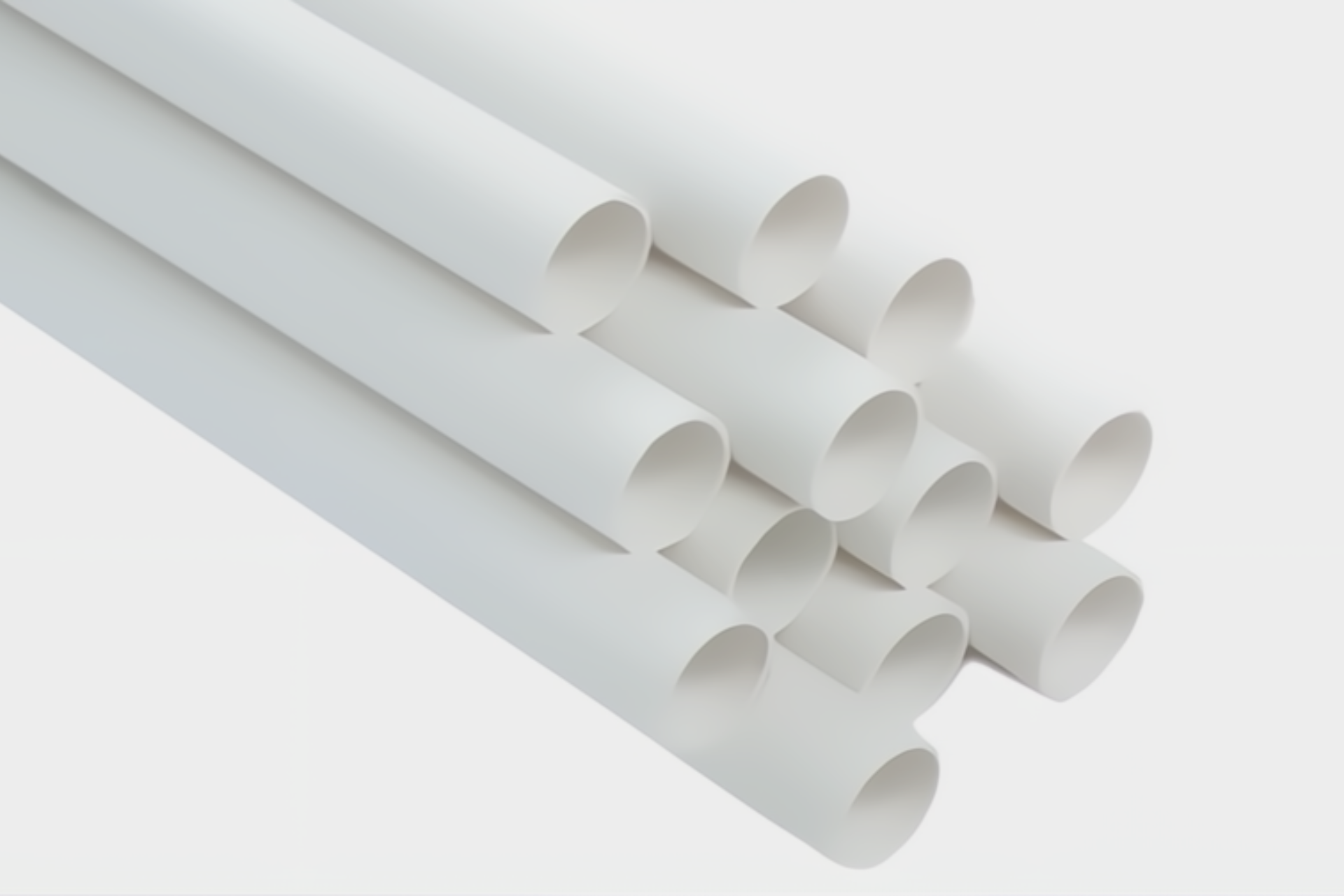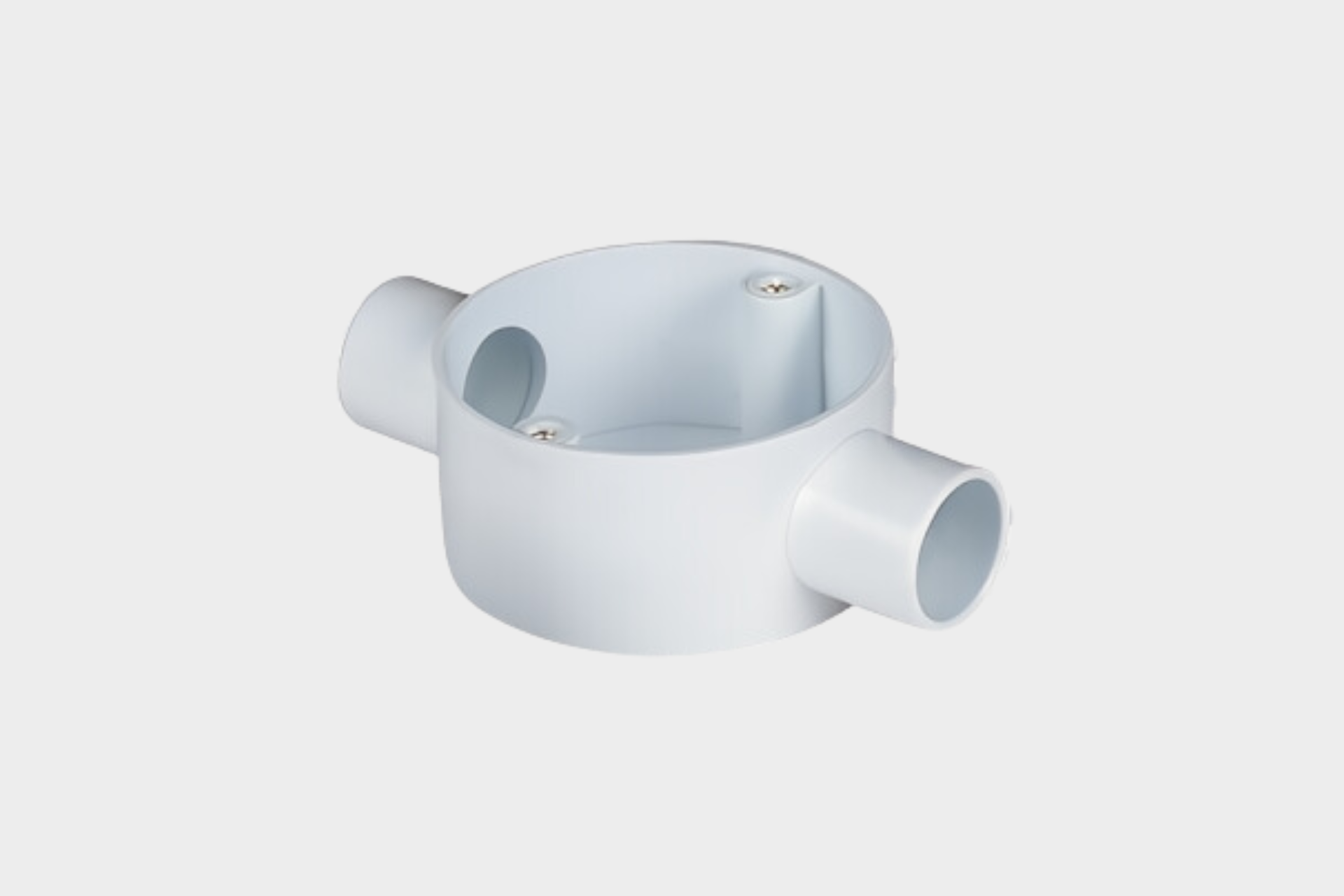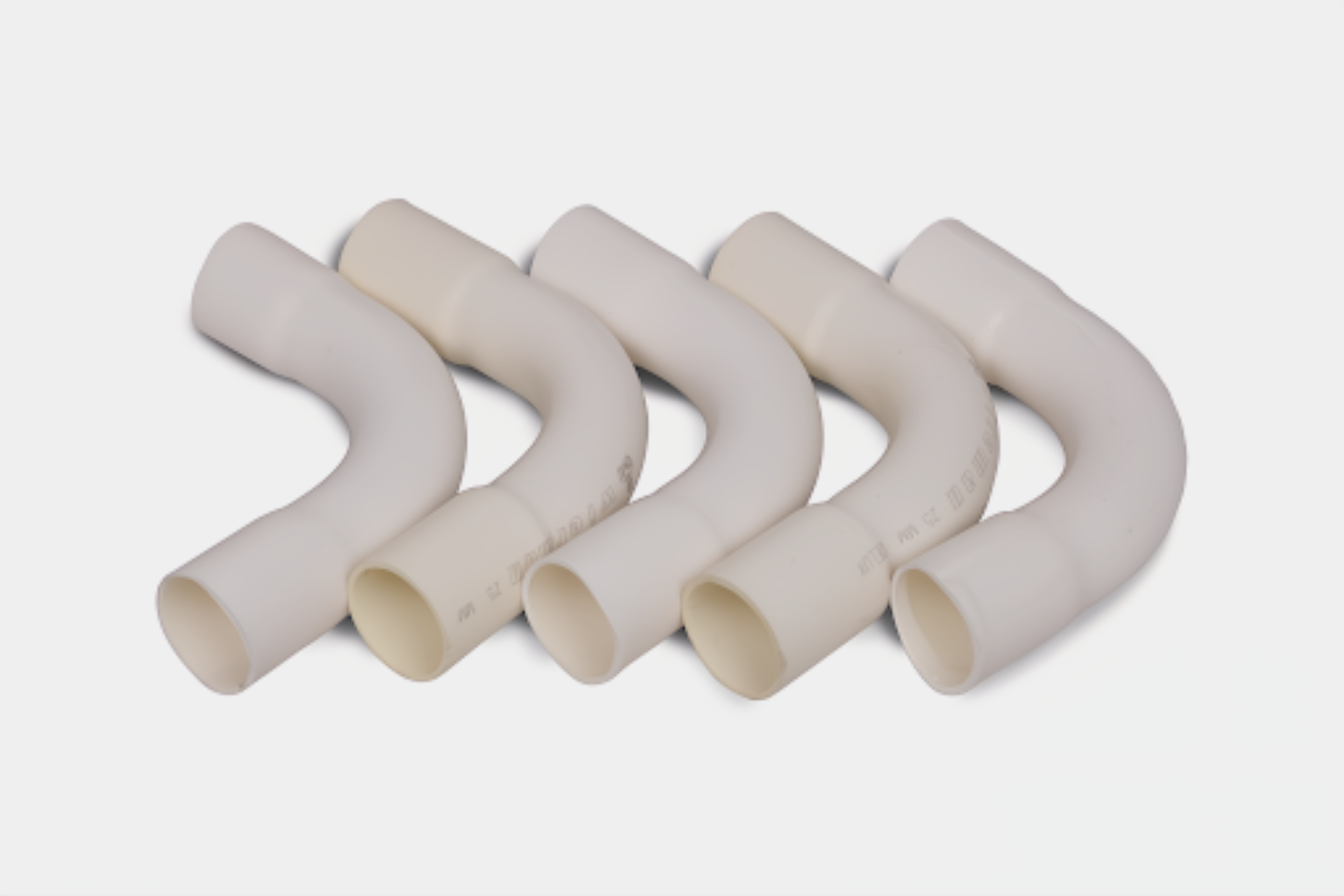





PVC CONDUIT PIPES
PVC conduit pipes are a type of plastic piping system used for protecting and routing electrical wiring in buildings or structures. "PVC" stands for polyvinyl chloride, a durable and versatile thermoplastic material. Here are some key points about PVC conduit pipes:
MaterialPVC conduit pipes are made from polyvinyl chloride, a synthetic plastic polymer known for its strength, durability, and resistance to corrosion.
Usage- These pipes are commonly used in electrical installations to protect and organize electrical wires and cables.
- They provide a secure enclosure that prevents physical damage, moisture ingress, and chemical exposure to the electrical wiring.
- PVC conduit pipes come in various types, such as rigid PVC conduit and flexible PVC conduit.
- Rigid PVC conduit is more suitable for aboveground installations, while flexible PVC conduit is used in areas where bending is required, such as around corners.
PVC conduit pipes are available in different sizes to accommodate various wire gauges and installation requirements.
Installation- The installation process involves securing the conduit to walls or structures and running electrical wires through the enclosed space.
- PVC conduit pipes are often used in both residential and commercial applications for indoor and outdoor installations.
PVC conduit pipes should comply with relevant industry standards and codes to ensure safety and performance.
Color CodingIn some cases, PVC conduit pipes are available in different colors to help identify the type of wiring or the specific purpose of the conduit.
MaintenancePVC conduit requires minimal maintenance, as it does not rust or deteriorate over time.
When working with PVC conduit pipes, it's important to follow local building codes and regulations to ensure proper installation and safety standards are met. Always consult with a qualified electrician or professional for specific project requirements.
Electrical Properties
- Dialectical Strength: No breakdown even at 5000 volts
- Insulation resistance = very good at above 2000 meg. Ohm
Thermal Properties
- No deformation up to 70o c
- Very Firm against H.D. Flames
- Burning rate = Self Extinguishing
- low coefficient of linear expansion
Mechanical Strength
- Excellent resistance to crushing
- High impact strength
- Excellent rigidity
- High order flexibility in bending
Salient Features
- Weather Proof
- Fire Retardant
- Non – Toxic
- Hygienic
- Light Weight
- Easy Installation
- U.V Stablised
Have any question? Please ask to us!
Why choose us ?






